-
About
- About Listly
- Community & Support
- Howto
- Chrome Extension
- Bookmarklet
- WordPress Plugin
- Listly Premium
- Privacy
- Terms
- DMCA Copyright
- © 2010-2025 Boomy Labs


 akanksha-varia
akanksha-varia
Listly by akanksha-varia
William Shakespeare occupies a unique position in the world of literature. He was an English playwright, actor and poet also known as the “Bard of Avon” and often called England’s national poet.He was born in the village of Stratford-upon-Avon in April 1564 and died there in April 1616. His surviving body of work includes 38 plays, 154 sonnets and two narrative poems, the majority of which he penned between 1589 and 1613. While much of Shakespeare's biography is unknown, murky or subject to dispute, historians have managed to verify factual data through his own writings, the works of his contemporaries and historical documents.
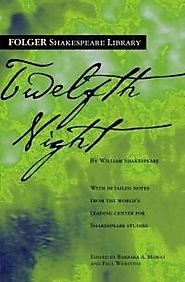
Set in a topsy-turvy world like a holiday revel, this comedy devises a romantic plot around separated twins, misplaced passions, and mistaken identity. Juxtaposed to it is the satirical story of a self-deluded steward who dreams of becoming “Count Malvolio” only to receive his comeuppance at the hands of the merrymakers he wishes to suppress. The two plots combine to create a farce touched with melancholy, mixed throughout with seductively beautiful explorations on the themes of love and time, and the play ends, not with laughter, but with a clown’s sad song.
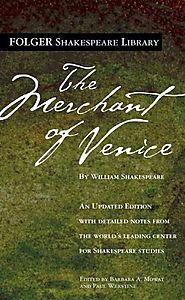
The Merchant of Venice is one of Shakespeare’s most popular comedies, but it remains deeply controversial. The text may seem anti-Semitic; yet repeatedly, in performance, it has revealed a contrasting nature. Shylock, though vanquished in the law-court, often triumphs in the theatre. In his intensity he can dominate the play, challenging abrasively its romantic and lyrical affirmations. What results is a bitter-sweet drama.
Though The Merchant of Venice offers some of the traditional pleasures of romantic comedy, it also exposes the operations of prejudice. Thus Shakespeare remains our contemporary.

In The Tempest, long considered one of Shakespeare's most lyrical plays, Prospero—a magician on an enchanted island—punishes his enemies, brings happiness to his daughter, and comes to terms with human use of supernatural power. The Tempest embodies both seemingly timeless romance and the historically specific moment in which Europe begins to explore and conquer the New World.
Its complexity of thought, its range of characters—from the spirit Ariel and the monster Caliban to the beautiful Miranda and her prince Ferdinand -its poetic beauty, and its exploration of difficult questions that still haunt us today make this play wonderfully compelling.
The Tempest is a play by William Shakespeare, believed to have been written in 1610–11. It is set on a remote island, where Prospero, the exiled Duke of Milan, plots to restore his daughter Miranda to her rightful place, using illusion and skillful manipulation. The eponymous tempest brings to the island Prospero's usurping brother Antonio and the complicit Alonso, King of Naples. There, his machinations bring about the revelation of Antonio's low nature, the redemption of Alonso, and the marriage of Miranda to Alonso's son, Ferdinand.
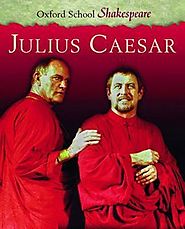
The Oxford School Shakespeare has become the preferred introduction to the literary legacy of the greatest playwright in the English language. This exclusive collection of the Bard's best works has been designed specifically for readers new to Shakespeare's rich literary legacy. Each play is presented complete and unabridged, in large print. Every book is well illustrated, and starts with a commentary and character summary. Scene synopses and character summaries clarify confusing plots, while incisive essays explore the historical context and Shakespeare's sources. Each book ends with a complete list of Shakespeare's plays and a brief chronology of the Bard's life. The detailed explanatory notes are written clearly and positioned right next to the text--no more squinting at microscopic footnotes or flipping pages back and forth in search of end notes!
The new edition of the series features new covers and new illustrations, including both new drawings and photos from recent productions of Shakespeare's plays around the globe. In addition, the notes and the introductory material have been completely revised in line with new research and in order to make them clearer and more accessible. Finally, the entire text has been redesigned and reset to enhance readability. The new edition achieves the feat of unprecedented clarity of presentation without any cuts to the original text or the detailed explanations.

Hilarious fun, this early comedy is filled with the merry violence of slapstick and farce. When two sets of twins, separated and apparently lost to each other, all end up in the rowdy, rollicking city of Ephesus, the stage is set for mix-ups, mayhem, and mistaken identity--plus the timeless puns, jokes, gags, and suspense that makes this play a wonderful theatrical frolic and a brilliant tour de force of language and laughter
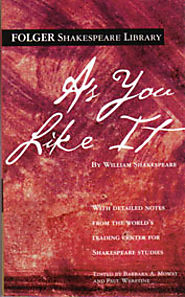
As You Like It is a pastoral comedy by William Shakespeare believed to have been written in 1599 or early 1600 and first published in the First Folio, 1623. The play's first performance is uncertain, though a performance at Wilton House in 1603 has been suggested as a possibility. As You Like It follows its heroine Rosalind as she flees persecution in her uncle's court, accompanied by her cousin Celia and Touchstone the court jester, to find safety and, eventually, love, in the Forest of Arden.
Historically, critical response has varied, with some critics finding the work of lesser quality than other Shakespearean works and some finding the play a work of great merit. The play features one of Shakespeare's most famous and oft-quoted speeches, "All the world's a stage", and is the origin of the phrase "too much of a good thing". The play remains a favourite among audiences and has been adapted for radio, film, and musical theatre
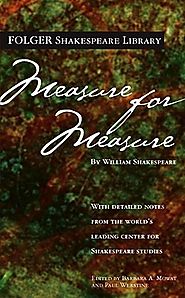
Measure for Measure is among the most passionately discussed of Shakespeare’s plays. In it, a duke temporarily removes himself from governing his city-state, deputizing a member of his administration, Angelo, to enforce the laws more rigorously. Angelo chooses as his first victim Claudio, condemning him to death because he impregnated Juliet before their marriage.
Claudio’s sister Isabella, who is entering a convent, pleads for her brother’s life. Angelo attempts to extort sex from her, but Isabella preserves her chastity. The duke, in disguise, eavesdrops as she tells her brother about Angelo’s behavior, then offers to ally himself with her against Angelo.
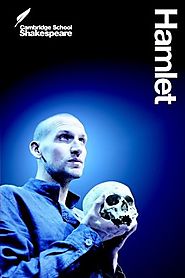
Among Shakespeare's plays, "Hamlet" is considered by many his masterpiece. Among actors, the role of Hamlet, Prince of Denmark, is considered the jewel in the crown of a triumphant theatrical career. Now Kenneth Branagh plays the leading role and co-directs a brillant ensemble performance. Three generations of legendary leading actors, many of whom first assembled for the Oscar-winning film "Henry" V, gather here to perform the rarely heard complete version of the play. This clear, subtly nuanced, stunning dramatization, presented by The Renaissance Theatre Company in association with "Bbc" Broadcasting, features such luminaries as Sir John Gielgud, Derek Jacobi, Emma Thompson and Christopher Ravenscroft. It combines a full cast with stirring music and sound effects to bring this magnificent Shakespearen classic vividly to life. Revealing new riches with each listening, this production of "Hamlet" is an invaluable aid for students, teachers and all true lovers of Shakespeare -- a recording to be treasured for decades to come.
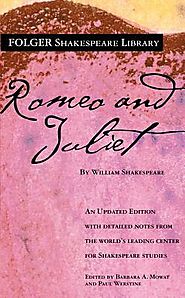
In Romeo and Juliet, Shakespeare creates a world of violence and generational conflict in which two young people fall in love and die because of that love. The story is rather extraordinary in that the normal problems faced by young lovers are here so very large. It is not simply that the families of Romeo and Juliet disapprove of the lover's affection for each other; rather, the Montagues and the Capulets are on opposite sides in a blood feud and are trying to kill each other on the streets of Verona. Every time a member of one of the two families dies in the fight, his relatives demand the blood of his killer. Because of the feud, if Romeo is discovered with Juliet by her family, he will be killed. Once Romeo is banished, the only way that Juliet can avoid being married to someone else is to take a potion that apparently kills her, so that she is burried with the bodies of her slain relatives. In this violent, death-filled world, the movement of the story from love at first sight to the union of the lovers in death seems almost inevitable.
What is so striking about this play is that despite its extraordinary setting (one perhaps reflecting Elizabethan attitudes about hot-blooded Italians), it has become the quintessential story of young love. Because most young lovers feel that they have to overcome giant obstacles in order to be together, because they feel that they would rather die than be kept apart, and especially because the language Shakespeare gives his young lovers is so exquisite, allowing them to say to each other just what we would all say to a lover if we only knew how, it is easy to respond to this play as if it were about all young lovers rather than about a particular couple in a very unusual world. (When the play was rewritten in the eighteen century as The History and Fall of Caius Marius, the violent setting became that of a particularly discordant period in classical Rome; when Leonard Berstein rewrote the play as West Side Story, he chose the violent world of New York street gangs.)
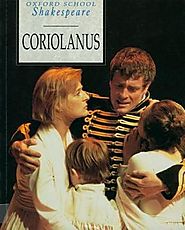
Shakespeare's last tragedy explores the career and death of a brilliant and arrogant Roman general. This is an ambitious and intriguing story of heroism.
